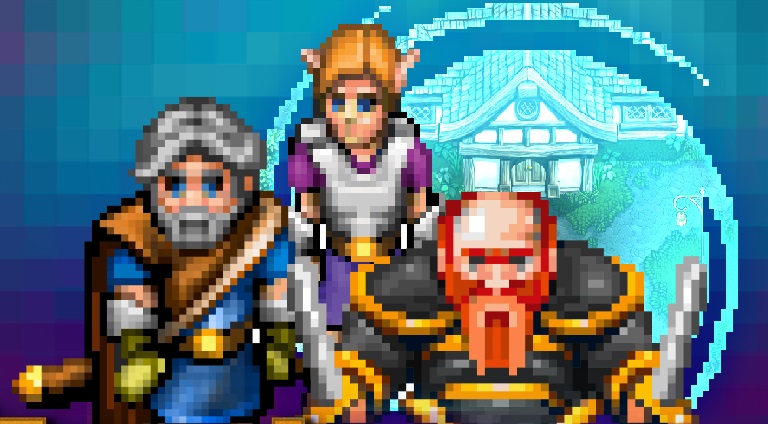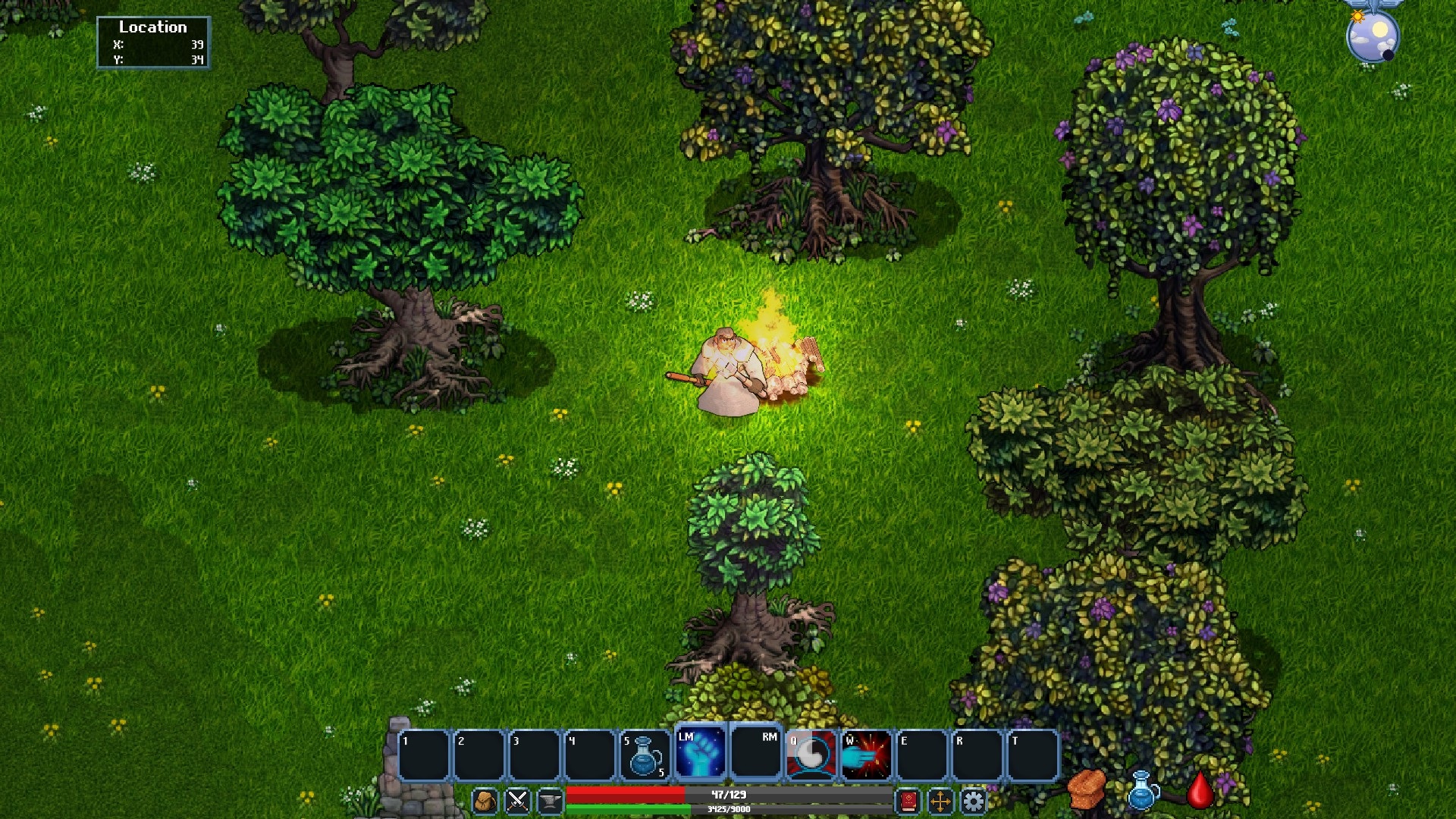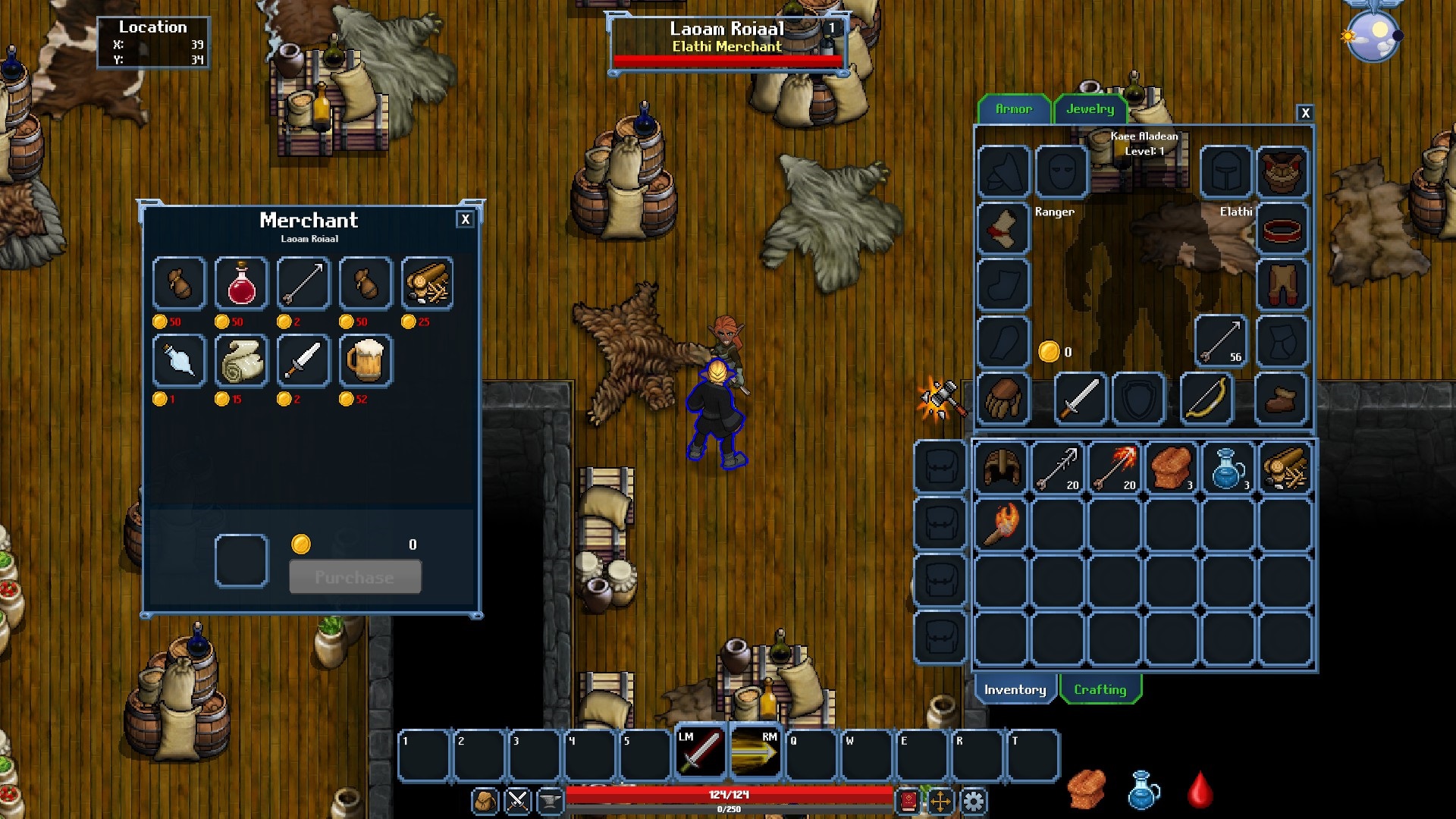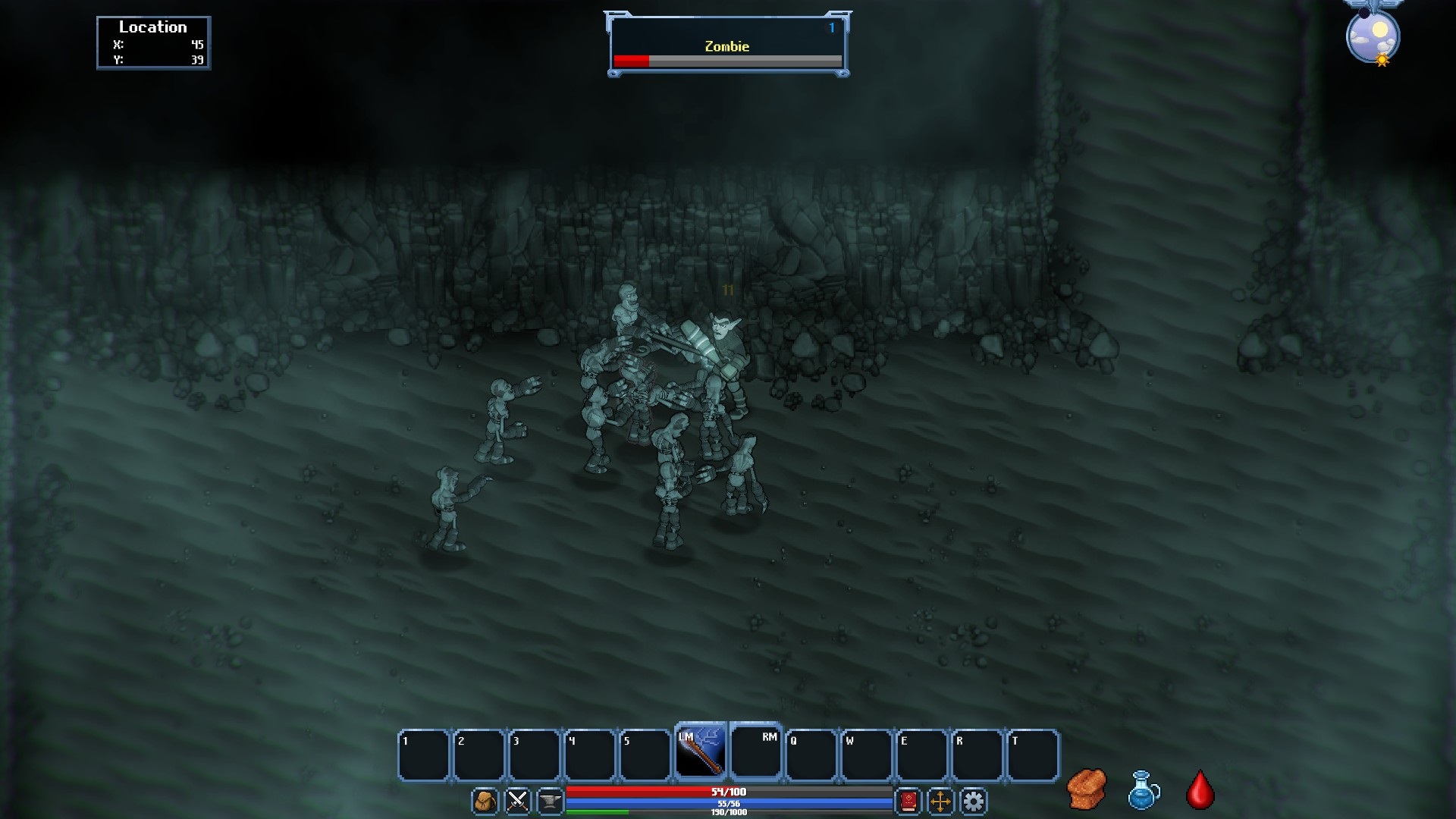Hands-on with Hero's Song, the ambitious roguelike RPG inspired by Dwarf Fortress
Hero's Song has a veteran fantasy writer and a veteran developer behind its ambitious, emergent RPG concept.

If my first attempt at Hero's Song had actually been a song, I barely would have had time to reach the second chorus. It took me far less time to die in my world than it'd taken to make it. I spent half an hour creating a world I'd enjoy for this roguelike RPG, weighing the pros of chaotic gods who manifest themselves as swarms of rats and the cons of blonde elf goddesses who bring forests and abundant life. I pored over descriptions of its 10 races and 15 current classes, and scoured webpages with Celtic baby names for my elathi monk.
And so it was, naturally, that I hopped across huge puddle north of the town where I spawned and got killed by two arrows from an orcish archer within seconds. I had a single chance to revive by making a trip through the Underworld, but a swarm of zombies got me as I pushed for the door. Permadeath. Poor Conloach Niocha wasn't even a one-hit wonder.

That's roguelikes, of course. The next five characters I made across multiple servers fared far better, particularly once I learned to lure enemies to where I wanted them. And even though my other characters had the spans between their births and deaths filled with more exploration, crafting, and skill unlocks, that's about as exciting as Hero's Song gets right now. It's so 'Early Access,' in fact, that it flashes a screenwide notice that Pixelmage Games is "just at the beginning stages of our vision" at launch. and it doesn't even take an hour with Hero's Song to see just how true that is.
Yet it's an attractive vision. One of the main draws here is the way each world's procedural design is influenced by the gods you choose to run them in the world creation screen. The minimum is three (along with one to lord over the Underworld), although you can expand that to six by choosing the largest map option and toggle the degree of their influence with an abacus-like interface. There's Dreth, who looks like a Viking metal frontman and injects the world with more wars and deaths that "come quickly and often." There's Hebrim, looking all the world like the Shroud of Turin and bringing more magic to creation, or the tentacled, toothy Nyargoth who ensures the world will have more oceans. Their stories in the descriptions make for fascinating reading, which doesn't come as much as a surprise as the associated lore is the work of bestselling Name of the Wind author (and dev team member) Patrick Rothfuss.

There's the skeleton of a decent game here, sure, and it's quickly being fleshed out with patches. I'm on my best playthrough yet, and I've stumbled across a couple of towns where I can sell and buy some junk. I've learned to enjoy the simple crafting system (while staying appalled at how few branches for life-renewing fires there are in forests) and its small but diverse mix of crafting and food. The 10 abilities and tree passives for each class seem well thought-out, such as a shield that absorbs 40 percent of all damage for five seconds. Some even seem a little too good, such as the paladin's self-heal that basically lets her run around like a god. Above all else, I love the music.
But it's a good start that doesn't really go anywhere at the moment, often literally. The maps are staggeringly huge, but with few interactions to shake them up aside from the occasional clash with orcs or bumblebees to gain XP. Likely because of a bug, I once doggedly marched toward a supposed dungeon on the map for half an hour only to never find it. Or almost any dungeon, really, even though the world generator said it created 2,697 of them. As it is, you die a lot with most classes, and die quickly.

And yet it can be fun. I enjoyed exploring the worlds I made until I realized that the procedural generation sometimes proceeds a touch too far. I initially frowned at its simplicity for its resemblance to Facebook RPGs, but I grew to enjoy the simple combat (focused on left and right mouse clicks and keyboard -triggered abilities and items), particularly once the skillset fleshed out. Each class maintains a distinct identity even with that simplicity, so much so that I'm looking forward to tinkering with unreleased classes like the bard and berserker when they make their appearance. I'm even attracted to the idea of becoming a god by making it past level 50. But right now it's not enough. I'd rather come back in a couple of months and see what it's like then.
The biggest gaming news, reviews and hardware deals
Keep up to date with the most important stories and the best deals, as picked by the PC Gamer team.
It seems I'm not the only one. Some people call Hero's Song an MMORPG, perhaps because it's headed by John Smedley of Sony Online Entertainment fame (and, sadly, some infamy), but right now that's a little like saying Galaga's kinda like EVE Online. I can choose to set my world to singleplayer or online multiplayer, but even at prime time I've found only six people on the most popular online game. Even then, the sizes of the randomly generated worlds mean your chances of actually seeing anyone are just a tad better than they are in No Man's Sky. and until a recent patch you couldn't even chat with them. It doesn't seem to matter much: When I typed variations on "Anybody out there" a few times into that bustling six-person server, no one ever responded.
Given enough time, I imagine it'll be a song worth hearing. But right now, it seems as though its makers are still tuning their instruments.

